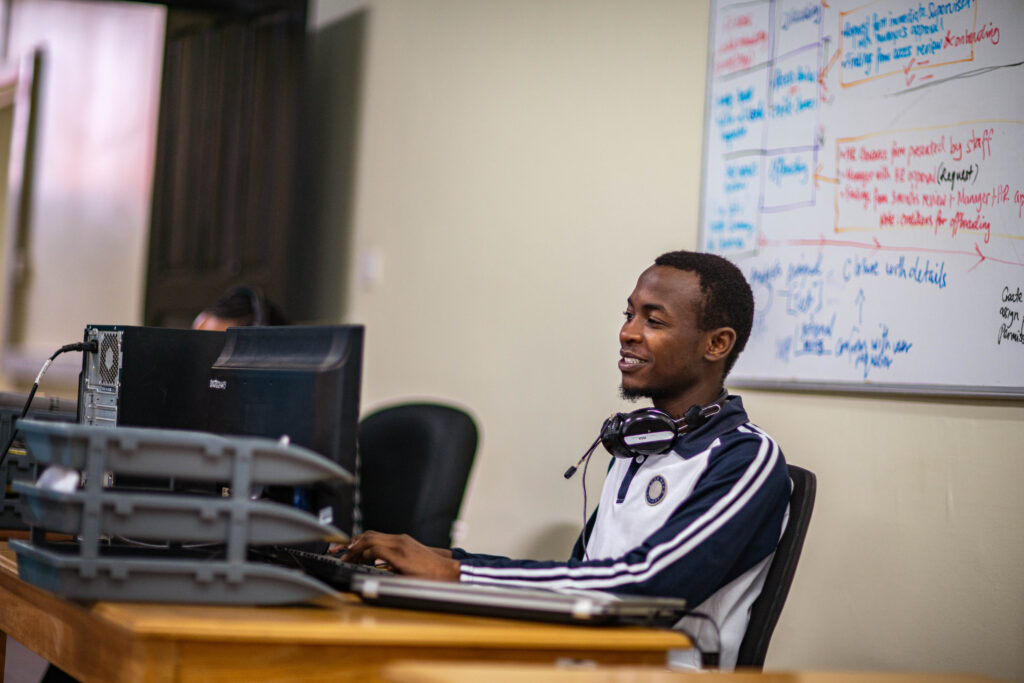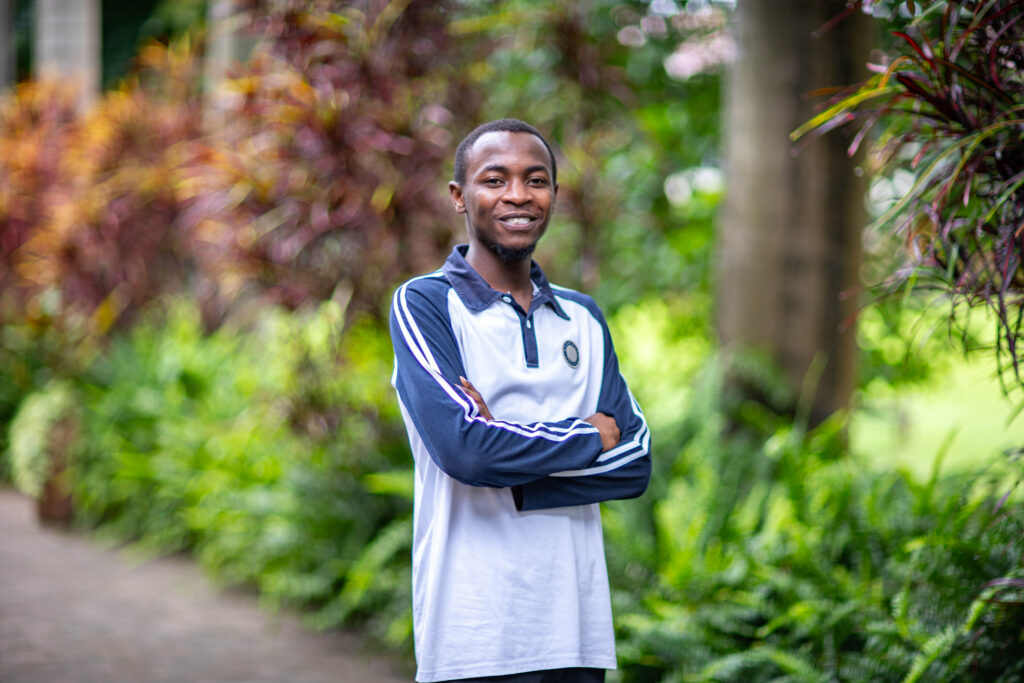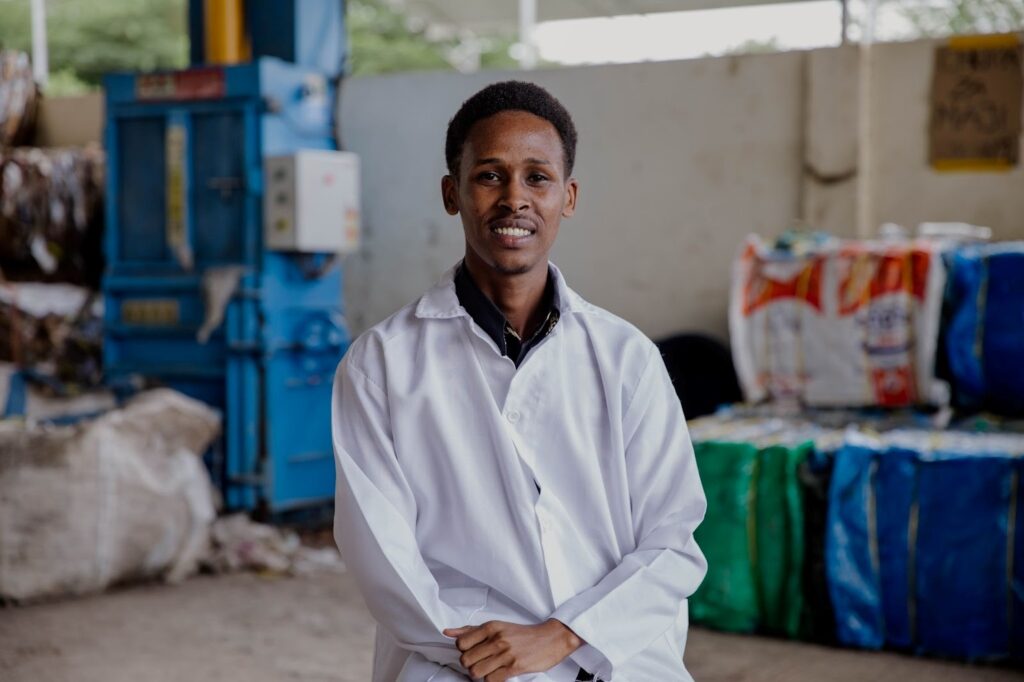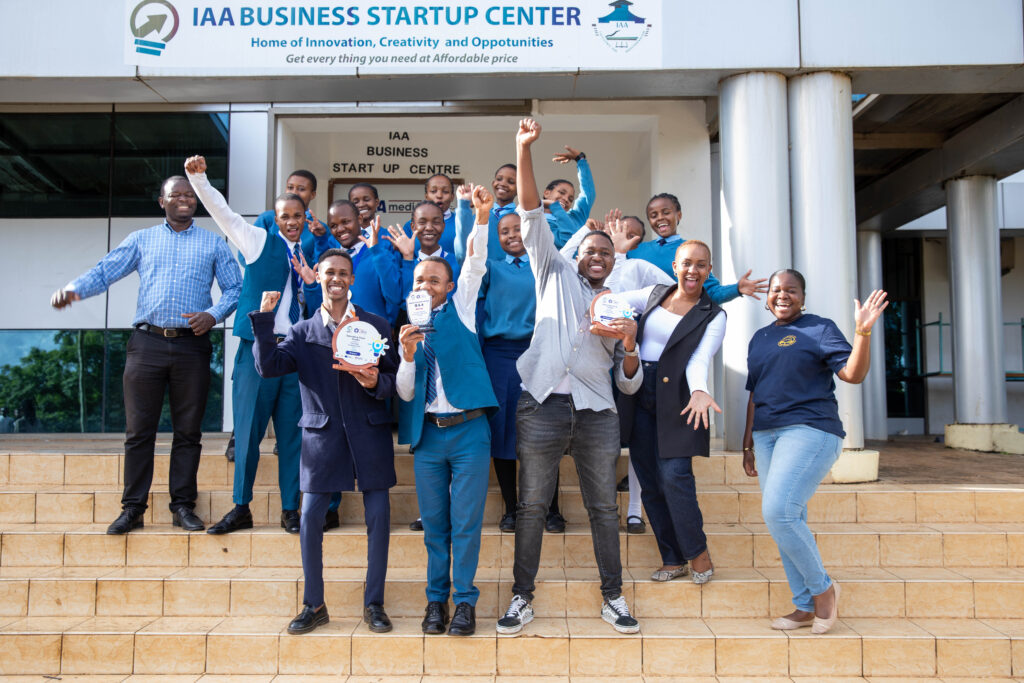From curiosity to computer science

When Joseph joined St Jude’s in 2018 as a Form 1 student, he never predicted that a simple break-time conversation with friends would spark a passion that would shape his future.
“A group of students were talking about Java, a programming tool I’d never heard of. I’m the kind of person who looks things up if I don’t understand them. So, I went to the library and started reading everything I could about computers,” recalls Joseph, who graduated in the Class of 2024.
Before joining St Jude’s, Joseph completed his primary education at a local government school in Arusha, where computers were something he’d only ever seen from afar.
“I had never even touched a computer before coming to St Jude’s. I’d only seen them in movies and on screens, where they looked really cool. I just fell in love with them,” he says.
Eager to learn more, Joseph began teaching himself the basics of programming, using every resource he could find in the school library.
“The books I was reading were all in English, and I was still learning the language at that time. But I just kept going. I really fell in love with it and continued to teach myself,” he says.
Fast forward to today, and Joseph’s passion has come full circle. As part of his Community Service Year (CSY) - where Form 6 graduates have the opportunity to take part in a year of community service - he is volunteering in St Jude’s Corporate Applications team, using his skills to tackle real-world challenges and help improve internal systems at the school.
One of his most impressive contributions has been the development of an automatic system that tracks and manages government parking fees; a crucial task for St Jude’s, which operates a fleet of more than 30 vehicles.
“When the school buses park outside the school, the government charges a parking fee. Previously, staff had to manually check each plate number online to calculate the monthly charges. This was a time-consuming job, especially with so many vehicles to manage,” explains Joseph.
Now, thanks to his innovation, the system now automatically retrieves all St Jude’s bus plate numbers from the government portal and generates a report – saving valuable time and reducing the risk of errors.
“We’ve been improving it based on feedback. I keep refining it with input from the team. I’m now working on how to store the data for the records,” adds Joseph.
With his CSY wrapping up in July, Joseph has his sights set on tertiary studies in computer science or financial technology, with plans to eventually merge the two fields.
“The CSY program has been amazing. I’m learning so much, and it’s opened up a lot of opportunities," he says.
“Doing CSY at the place where my passion for computers began, and being able to give back using the skills I’ve developed from my time here, is very rewarding. I’m excited for what the future will bring.”






